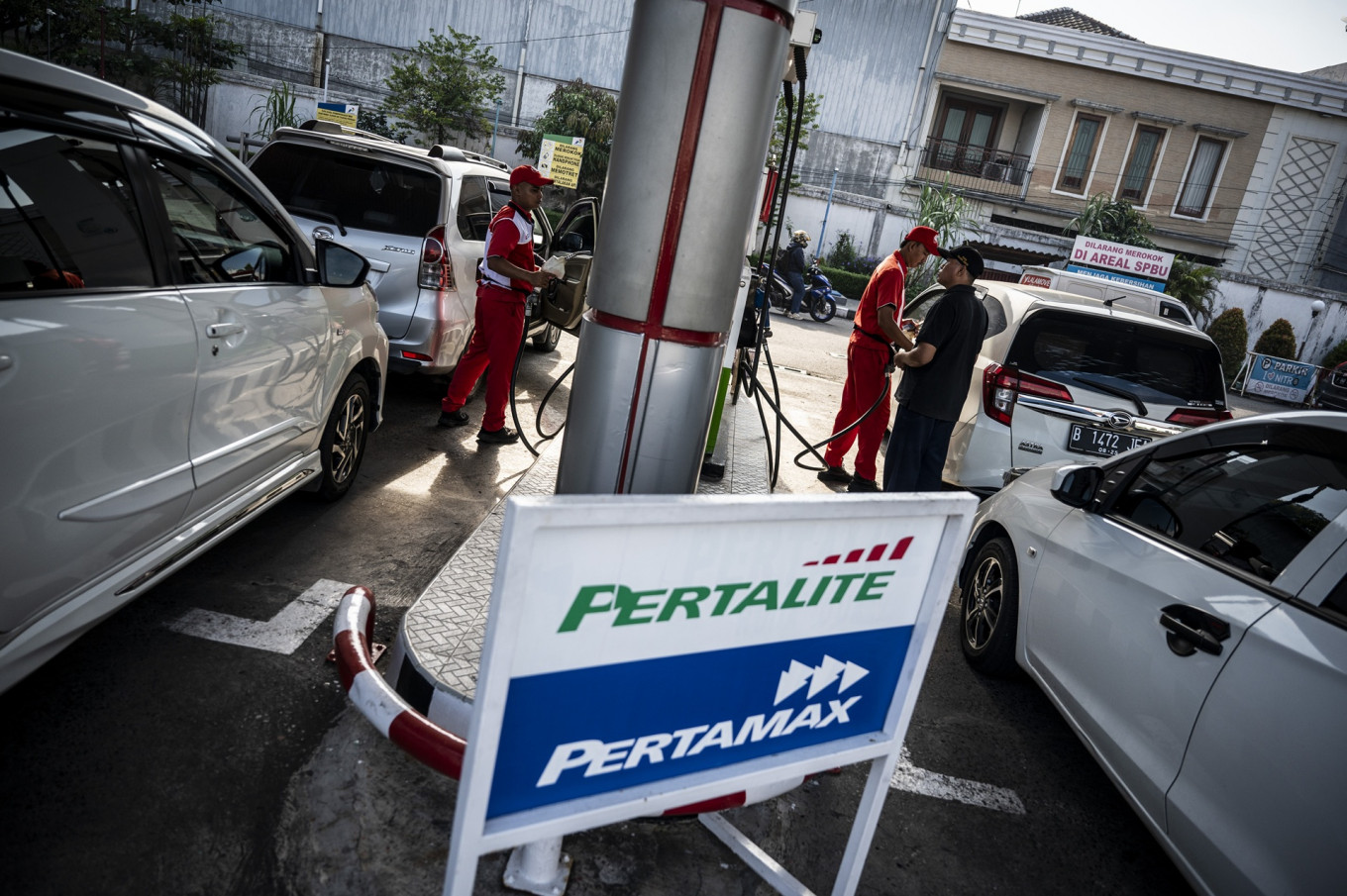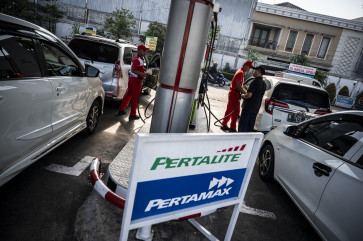Popular Reads
Top Results
Can't find what you're looking for?
View all search resultsPopular Reads
Top Results
Can't find what you're looking for?
View all search resultsPertamina’s governance crisis and the lingering ghost of corruption
The continued involvement of brokers and middlemen in fuel procurement, coupled with the lack of transparency in tender processes, underscores the ongoing vulnerabilities in Pertamina’s governance structure.
Change text size
Gift Premium Articles
to Anyone
 Fueling mistrust: Attendants of a gas station owned by state-owned energy holding company Pertamina serve customers on Feb. 27 in Semarang, Central Java. The Energy and Mineral Resources Ministry has raised a plan to establish a team to verify the octane number of gasoline amid concerns from the public of fuel adulteration, following a graft investigation by the Attorney General's Office (AGO) pertaining to fuel imports and exports by a Pertamina subsidiary. (Antara/Aprillio Akbar)
Fueling mistrust: Attendants of a gas station owned by state-owned energy holding company Pertamina serve customers on Feb. 27 in Semarang, Central Java. The Energy and Mineral Resources Ministry has raised a plan to establish a team to verify the octane number of gasoline amid concerns from the public of fuel adulteration, following a graft investigation by the Attorney General's Office (AGO) pertaining to fuel imports and exports by a Pertamina subsidiary. (Antara/Aprillio Akbar)
T
he recent allegations of corruption within state-owned oil and gas company PT Pertamina have once again cast a dark shadow over the nation’s energy sector. The Attorney General’s Office (AGO) has estimated potential state losses of Rp 193.7 trillion (US$11.87 billion) due to mismanagement and corrupt practices between 2018 and 2023.
This revelation underscores the persistent governance failures that have plagued Pertamina for decades, reinforcing the deeply entrenched culture of economic patronage that dates back to the Soeharto era.
The roots of Pertamina’s governance crisis can be traced to the 1970s under the leadership of Ibnu Sutowo, a high-ranking Army officer, who transformed the company into an economic and political powerhouse, using its vast oil revenues to fund military interests, political campaigns and even social projects, such as the construction of hospitals and the renovation of the presidential office.
However, this unchecked financial power led to mismanagement and a lack of accountability, culminating in Pertamina’s near bankruptcy with a staggering $10 billion debt burden. Although Ibnu was dismissed in 1976, the precedent for using Pertamina as a tool for economic patronage had been set (Crouch 1978; Robison 1990).
The fall of Soeharto in 1998 and the subsequent reform era promised a new chapter for Indonesia’s energy sector. Yet, more than two decades later, Pertamina remains mired in the same old problems. Despite repeated pledges for reform, the company continues to serve as a political instrument, with leadership positions often awarded based on political affiliations rather than professional merit. Directors come and go, but the culture of patronage and corruption remains largely intact.
One of the most notable attempts to clean up Pertamina’s governance came in 2014 when the government established the Anti-Oil and Gas Mafia Task Force under then-energy and mineral resources minister Sudirman Said. Led by renowned economist Faisal Basri, the task force was assigned with identifying systemic issues in fuel procurement and distribution and proposing reforms.
Their findings were damning: A deliberate lack of investment in new refineries, opaque procurement processes and heavy reliance on costly fuel imports had left Indonesia vulnerable to exploitation. One of the task force’s most significant achievements was the forensic audit conducted by KordaMentha, an international investigative firm.


















